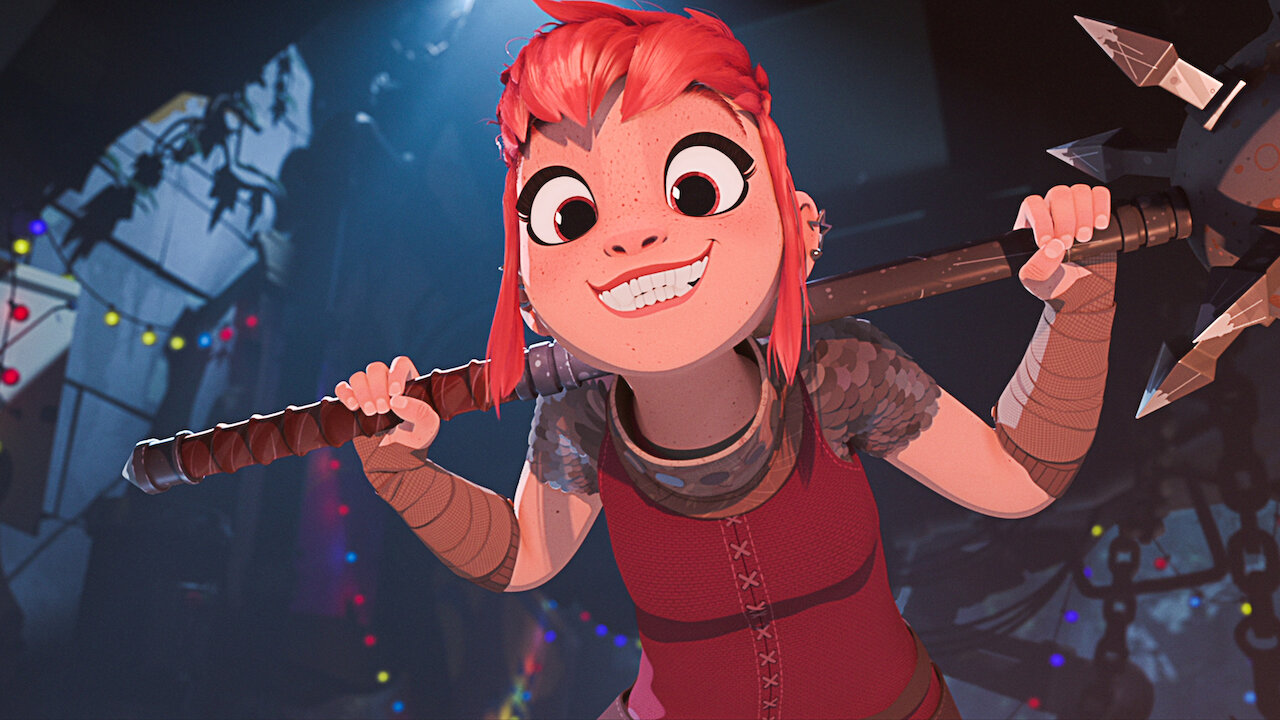The one theme that has persisted over the years of the greatest stories in the literary canon is that of “monsters.” Dracula, Frankenstein and Godzilla are past works that persevere through the ages, finding themselves readapted, revived and rejuvenated to meet today’s social commentary. And the new Netflix original, “Nimona,” finds its place amongst these giants, succeeding in a modern “monster” film that delivers a masterful portrayal of the queer narrative.
Before its June 30 release on Netflix, Blue Sky Studios’ “Nimona” had found itself deep into controversy as Disney had bought out its parent company, Fox, in 2020. After taking ownership, Disney resolved to dissolve the film’s animation studio and scrap the film itself, despite 75% of the film having been completed. It would be revealed that the decision was made due to Disney executives taking issue with the queer aspects of the story such as the non-binary Nimona, the explicitly gay main characters and a same-sex kiss. It is hard, then, to feel anything but gratitude to Netflix and Annapurna Picture for taking back the project in April 2022, empowering the movie as a beacon of defiance to the corporate narrative and hope for LGBTQ+ storytelling.
The science-fiction/fantasy animated film, based on cartoonist ND Stevenson’s graphic novel, revolves around Ballister Boldheart (Riz Ahmed) who was given the chance to rise to the rank of knighthood by the Queen, despite his absence of any relation to royalty. As he is about to be knighted after graduating to the top of his class, tragedy strikes when his mechanical sword, unknowingly holding a laser mechanism, shoots a beam that kills the Queen and spirals his life downward. He then goes on the run from the entire kingdom for a murder he had unfairly been misaligned with. Nimona (Chloë Grace Moretz), an outcast and cryptic, yet boisterous and punky character sporting shapeshifting powers, joins him as his sidekick. Resisted by Ambrosius Goldenloin, a direct heir to the original royal bloodline and secret lover to Ballister, Ballister and Nimona find themselves understanding and growing alongside each other while unraveling the mystery behind the murder of the Queen.
The unsurprising star of the film is undoubtedly Nimona, as she finds herself in the audiences’ hearts through her energetically charming and electrically impish personality. With Moretz’s range in voice acting, the shapeshifter is able to deliver incredible performances on not only the comedic aspect of the story but also its more heartfelt scenes. Nimona steals the spotlight in every moment of the film and what rounds out her character more so is the writers’ fearlessness in also portraying her as extreme and problematic at times, remembering to ground the fantastical character with a human side. Ultimately, Nimona’s journey as the film’s “monster” is an incredibly rewarding and nuanced tale that is the heart of the film.
Tackling the narrative of acceptance in contemporary films is a long attempted endeavor, pitting “Nimona” against the vast multitudes of incredible films on what it means to be different. Therefore, the motifs and narrative of “Nimona” do not shine as innovative or unique to modern film standards, but, instead, reveal a brilliance when applied to a queer story with an incredibly compelling allegory. The first of which would be the connection of Nimona’s ability to change into any creature to her implicit nonconformity to the gender binary. When acknowledging that she would not be able to “live” if she was not shapeshifting, Nimona represents a powerful allegory for what it means to be trans-coded and the struggles and difficulties of the marginalized and discriminated against LGBTQ+ community.
This is also furthered by the theme of duality where the past and future meet in a complex discourse in a futuristic medieval-esque fusion. The pastel art style that would have well suited a conventional mythical fantasy storyline meets with the science fictional neon lights of the electric hovering cars, city lights and laser swords. The futuristic kingdom sports advanced technology in dichotomy with the traditions of royalty and knighthood representing marginalization and discrimination will always persist in different forms despite society’s advancements in the sciences, imbuing the film with a sense of cohesiveness between its art, direction and story.
Verdict: Blue Sky’s Studio’s last and greatest work, “Nimona,” is a film that will persevere as a work transcendent of the corporate movie industry. While delivering thoughtful and insightful commentary through its deliberate conjunction of aesthetic and narrative, the film serves to inspire more queer work and to never back away from representing the marginalized.








